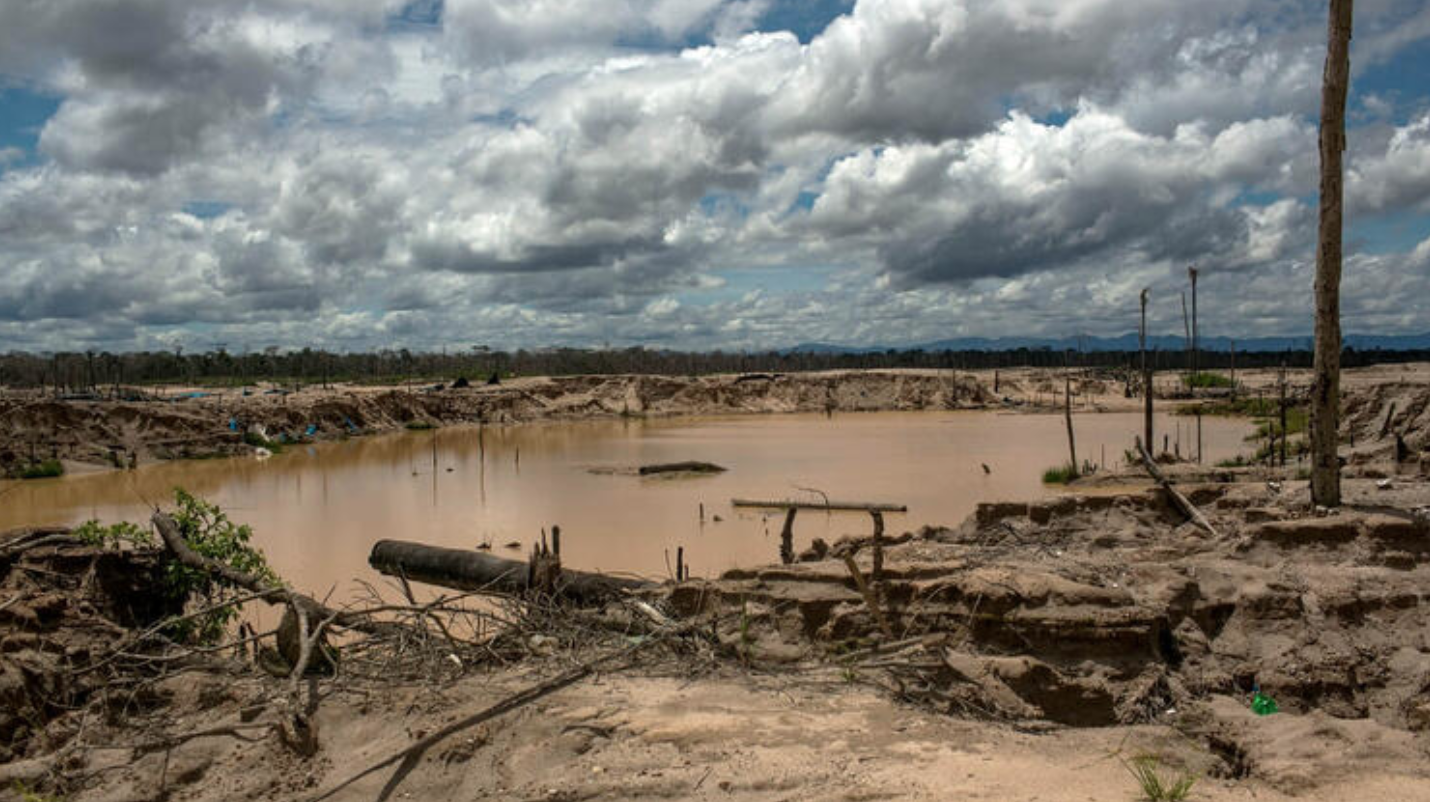Coauthors Melina Risso and Robert Muggah
Illegal deforestation, wildcat mining, drug trafficking, and lethal violence: Name your scourge and the Amazon Basin seldom disappoints. But as an unusual compact between police officers, prosecutors, environmental protectors, and money-laundering experts convened last week in Manaus shows, ruin can also give way to reflection – and even prospects for rapid response and building local resilience.
While it’s too soon to say the Amazon Basin is falling together, a recent event organized by our organization, the Igarape Institute, plus Interpol and the Iberian-American Association of Public Prosecutors in the historic Brazilian river port of Manaus was a meaningful step in the right direction. The event gathered experts from across Brazil, Colombia and Peru to reflect on the dire straits facing the iconic tropical biome, its people and the global climate.
Environmental crimes such as land grabbing, illegal logging and gold mining are razing the Amazon Basin at a breakneck pace, as research by our organization and others has consistently warned. This is not an environmental tragedy; each of these acts is a crime, typically clustered with other crimes.
A particularly worrisome development is the growing involvement of highly sophisticated drug trafficking factions, especially in Brazil, Colombia, Peru and also Ecuador. Owing to surging cocaine production and transshipment, armed groups such as the Primary First Command (PCC) and ex-FARC guerrillas are carving out a trail of resource predation, insecurity and spiraling violence in municipalities across the river basin. Wildcat gold prospectors financed by drug barons and local mafia are a growing menace to standing forests and biodiversity, especially in fragile border areas.
The rapidly deteriorating rule of law in areas where drugs and illicit commodities are trafficked is triggering new cycles of environmental destruction. In the wake of unprecedented drug trafficking in 2021 and 2022, the first few weeks of 2023 witnessed record-setting levels of deforestation in rainforest hotspots. Analysts refer to this as “narco deforestation” as criminal networks launder their profits into land speculation, clearcutting, agriculture and cattle production.
The timing of the Manaus gathering was auspicious. The conference kicked off as hearings began in the Bruno Pereira-Dom Phillips murder trial. Pereira, a Brazilian Indigenous expert and activist, and Phillips, a British journalist, were ambushed and killed in June 2022, while working in Javari Valley, in Brazil’s Amazonas state. The brutal killings caused an international outcry. They also drew renewed attention to the emergency in the Amazon, where wanton crimes fuel not one but three interconnected crises of planetary proportions: massive pollution, loss of biodiversity, and climate change.
A number of transnational criminal organizations are behind the surging ecosystem of environmental crime in the Amazon Basin, many of them operating with near impunity. Indeed, illegal gold is the new cocaine, according to Oscar Mojica, the head of environmental protection of Colombia’s national police, who noted that a kilo of cocaine powder in Cartagena fetches $2,000, while a kilo of gold earns $20,000. And toxic chemicals like cyanide and mercury used to extract gold are contaminating the region’s rivers and ecological systems with devastating implications for population health.
A grim metric for these criminal economies is the cresting homicide rate, which in many Amazon Basin departments and municipalities runs double the national averages. And as criminal violence rises, national and state-level efforts to protect biodiversity and reduce forest felling also falter. Amazonian provinces are setting the pace for lethal violence in Peru. The story is much the same in Colombia and in Brazil, where 13 of Latin America’s largest country’s 30 most violent cities lie within the river basin.
Experts at the Manaus event agreed that the two most important lubricants for environmental crime are money laundering and corruption. Crime syndicates spanning the Amazon Basin, as well as the Americas and Europe, cover their tracks by filtering the proceeds from their plunder through legitimate banks and the legal marketplace. Hence the renewed transnational focus, emphasized by representatives of the UN Office for Drugs and Crime, the Financial Action Task Force for Latin America (GAFILAT), and the European Union’s El Paccto initiative, to track, investigate and disrupt the flows of dirty money through improved financial intelligence and regional cooperation.
Yet seismic political shifts in several countries straddling the Amazon Basin have elevated the importance of collectively protecting and conserving rainforests and promoting sustainable alternatives for local residents. The pivot is evident in Brazil, where President Luiz Inacio Lula da Silva has restored protecting the rainforest and its people to the top of the national agenda and urged his government to end illegal mining in the wake of the humanitarian disaster in the Yanomami region.
In Colombia, the new administration of Gustavo Petro has vowed to crack down on the legal and illegal drivers of deforestation. Petro intends to build on his predecessor’s initiative, the 2021 Law for Environmental Crime, but faces stiff opposition from ranchers and the palm oil industry as well as a burgeoning criminal economy. And despite chronic political instability in recent years, there is a sense of renewed purpose in Peru.
There is also evidence of growing engagement to take on environmental crime, including calls to revitalize the Amazon Cooperation Treaty Organization. Lula recently announced that Brazil will host a leaders summit of the eight Amazonian nations in August 2023 in Belem, where the treaty organization will take a leading role. The European Union has also committed to another round of funding to its Jaguar Network which focuses on illegal timber, gold and wildlife crime, including a call to expand operations in the Amazon Basin.
Despite the challenges ahead, participants at the Manaus meeting were quietly optimistic, recognizing that a global and regional response to the devastation of the Amazon is urgent and that the plundering of the world’s largest tropical forest is fast becoming a problem of global dimensions, with collateral effects for climate and human security.
Melina Risso is the research director at Igarapé Institute
Robert Muggah is the Igarapé Institute’s co-founder













